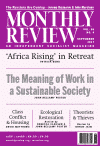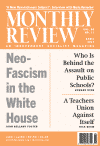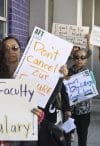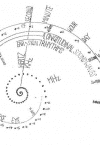Labor

Women's Labor and Resistance in Eastern India
Neoliberal development has opened the eastern Indian state of Odisha to mining companies and steel conglomerates, threatening the region’s ancient subsistence economies and provoking a fierce resistance, in which women have taken a leading role. | more…

At their best, worker cooperatives are among the most effective examples of radical democracy in action. A recent vogue for cooperatives as high-tech entrepreneurial endeavors, however, seeks to expand rather than challenge the rule of market economics. | more…

The publication last month of The Age of Monopoly Capital: The Selected Correspondence of Paul A. Baran and Paul M. Sweezy, 1949–1964, edited by Nicholas Baran and John Bellamy Foster, constitutes a landmark for Monthly Review Press. A historical document in itself, The Age of Monopoly Capital is not simply about the writing of their magnum opus, but also provides a window onto an entire era of American life. | more…

The idea of total liberation from work, in its one-sidedness and incompleteness, is ultimately incompatible with a genuinely sustainable society. The real promise of a system of labor beyond capitalism rests not so much on its expansion of leisure time, but rather on its capacity to generate a new world of creative and collective work, controlled by the associated producers. | more…

Consider the child with curly brown / hair sleeping with her dog in the back / of an old SUV while her parents doze / in scruffy front seats tilted back.…
Marge Piercy is the author of many books of poetry, most recently
Made in Detroit.

Did the accreditation crisis and subsequent labor struggle at City College of San Francisco represent a failure of union democracy, or a hard-won victory against corporate education reform? Rick Baum’s recent article on this question, “A Teachers Union Against Itself” (published the April 2017 issue of Monthly Review) prompted a lively response from AFT Local 2121 members and supporters. This correspondence article collects their letters, as well as a reply by Baum. | more…

U.S. immigration has been the subject of furious debates for decades. On one side, politicians and the media talk about aliens and criminals, with calls to “deport them all.” On the other side, some advocates idealize immigrants and gloss over problems associated with immigration. Dialogue becomes possible when we dig deeper and ask tough questions: Why are people in other countries leaving their homes and coming here? What does it mean to be “illegal”? How do immigration raids, prisons, and border walls impact communities? Who suffers and who profits from our current system—and what would happen if we transformed it? | more…

Capitalism was a radical break with the past: for the first time, production of basic goods was driven by the accumulation of wealth for its own sake, and not primarily to satisfy human needs. Likewise, we are alienated from the natural world, as the products of our own labor are no longer under our control. Our very perception of nature is shaped by an economic system that treats “the environment” as a collection of commodities to be exploited. | more…

One would think that with such an anti-worker president, the U.S. labor movement would be primed to do all in its power to mobilize union members to resist, much as millions of people have protested Trump since the day he took office. But such has not been the case. | more…

Organized Labor and the Crisis at City College of San Francisco
How did a community college that had managed to serve and retain most of its student population and remain fiscally sound amid a recession and a budget crisis become the target of condemnation by accrediting authorities? The answer involves a disastrous collision of corporate education reform, administrative arrogance, and timid, undemocratic union leadership. | more…

The Social Relations of Space Travel
As astronauts penetrate ever further into the cosmos, how are their bodies and subjectivities being transformed? While space travel remains governed by mechanisms of power and domination that tend to treat astronauts as tools, the practice of “space medicine” is now beginning to interact with astronauts’ bodies in a more multidirectional, dialectical fashion. | more…

Ahmed White’s vivid and deeply researched account of the Little Steel strike of 1937 makes an important contribution to our understanding of U.S. labor history, union organizing, and class conflict. It illustrates the tactical complexity of strikes, reveals the power and ruthlessness of employers, and demonstrates the risks of relying on the state to secure justice for working people. | more…











